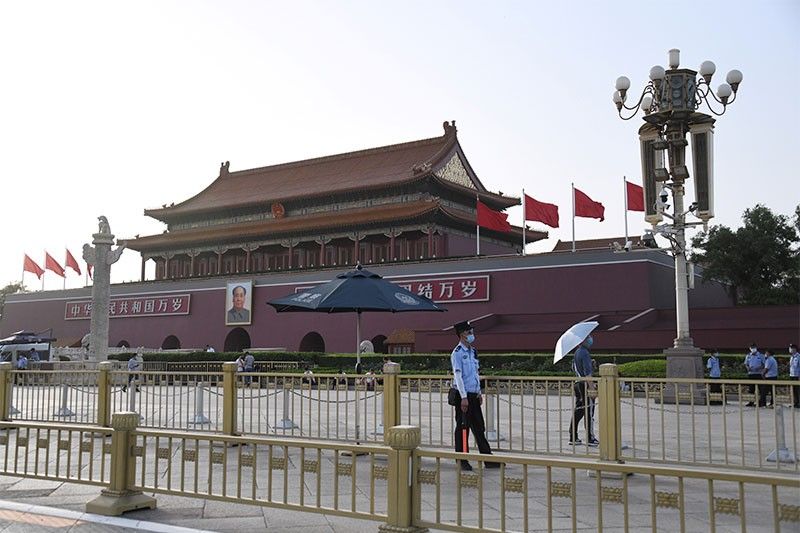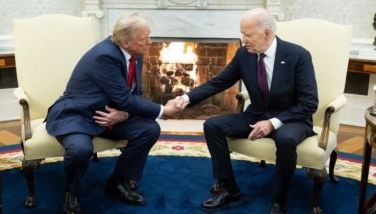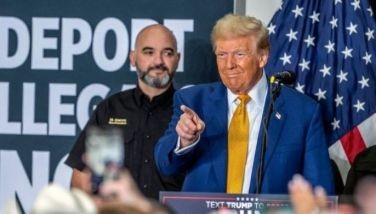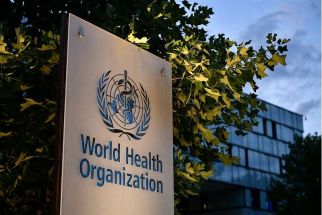Hong Kong to lead Tiananmen mourning despite virus vigil ban

HONG KONG, China — Hong Kong will Thursday lead global remembrance of China's deadly Tiananmen crackdown, with people lighting candles in neighbourhoods across the restless city after authorities banned a mass vigil because of the coronavirus.
Open discussion of the brutal suppression is forbidden inside China, where hundreds — by some estimates more than a thousand — died when the Communist Party sent tanks on June 4, 1989 to crush a student-led demonstration in Beijing calling for democratic reforms.
But Hong Kongers have kept memories alive for the last three decades by holding a huge annual vigil in a park, the only place inside China were such mass displays of remembrance are possible.
This year's vigil was forbidden on public health grounds with restrictions placed on more than eight people gathering in public, to combat the coronavirus.
Organisers have instead called for residents to light candles at 8:00 pm (1200 GMT) wherever they happen to be.
"If we are not allowed to light a candle at a rally, we will let the candles be lit across the city," Lee Cheuk-yan, chairman of vigil organisers Hong Kong Alliance, told reporters.
Crowds have swelled at Hong Kong's Tiananmen vigils whenever fears spike that Beijing is prematurely stamping out the semi-autonomous city's own cherished freedoms, an issue that has dominated the finance hub for the last 12 months.
The business hub was engulfed by seven straight months of huge and often violent pro-democracy protests last year — rallies that kicked off five days after the last annual vigil.
Security and anthem laws
In response to those protests last month Beijing announced plans to introduce a sweeping national security law covering secession, subversion of state power, terrorism and foreign interference.
China says the law — which will bypass Hong Kong's legislature — is needed to tackle "terrorism" and "separatism" in a restless city it now regards as a direct national security threat.
But opponents, including many Western nations, fear it will bring mainland-style political oppression to a business hub that was supposedly guaranteed freedoms and autonomy for 50 years after its 1997 handover to China from Britain.
Hong Kong's lawmakers are also expected to sign off on another controversial law on Thursday — one punishing insults towards China's national anthem with up to three years in jail.
With the Victoria Park vigil banned, Hong Kongers are organising locally and getting creative.
"We are expecting white candles to be distributed at 100 to 200 spots across Hong Kong," Chiu Yan-loy, a district councillor and alliance member told AFP.
Online groups have sent out maps and lists of more than a dozen districts calling for people to gather for small vigils.
Seven Catholic churches have also announced plans to host a commemorative mass on Thursday evening.
Riot police have moved swiftly against protests forming in recent weeks, citing the coronavirus measures.
Vigils are also planned in neighbouring Taiwan and among the Chinese diaspora in many western countries.
But in mainland China, Tiananmen is greeted by an information blackout, with censors scrubbing mentions of protests and dissidents often visited by police in the days leading up to June 4.
The candle emoji has been unavailable in recent days on China's Twitter-like Weibo platform.
On Wednesday, China's foreign ministry described calls by Taiwan for Beijing to apologise for the crackdown as "complete nonsense".
"The great achievements since the founding of new China over the past 70 or so years fully demonstrates that the developmental path China has chosen is completely correct," spokesman Zhao Lijian told reporters.
Millions march in Hong Kong in a powerful rebuke of an extradition law feared to expose them to China's capricious justice system.
Hong Kong national security police on Thursday detained four people, including the brother of prominent activist Dennis Kwok, one of eight fugitives with bounties on their heads for allegedly breaching national security.
The city's national security department "took in two men and two women from various districts in Hong Kong and Kowloon for investigation," a police source told AFP.
Among the four was the elder brother of former democracy lawmaker Dennis Kwok, who is currently in the United States.
"(Kwok's elder brother) is now under investigation in the Western District police station," the source said.
Three others, "two women and a man", were taken in Tuesday by the national security department, authorities told AFP earlier Thursday.
AFP has requested comment from police on the most recent detentions. — AFP
Three family members of exiled democracy activist Nathan Law have been taken in for questioning on Tuesday, days after authorities issued a bounty on him and seven others accused of breaching the city's national security law.
Police officers from the national security department brought in Law's parents and elder brother without formally arresting them, a police source confirmed to AFP.
"It's understood that officers from the NSD took three people -- Nathan Law's parents and elder brother -- in for questioning," they said.
"So far, no arrest has been made." — AFP
The United States condemns Hong Kong authorities for issuing bounties linked to democracy activists based abroad, saying the move sets a dangerous precedent that could threaten human rights.
Hong Kong police offered bounties of HK$1 million (about $127,600) for information leading to the capture of eight prominent dissidents who live abroad and are wanted for national security crimes.
"The United States condemns the Hong Kong Police Force's issuance of an international bounty" against the eight activists, State Department spokesperson Matthew Miller says in a statement.
"The extraterritorial application of the Beijing-imposed National Security Law is a dangerous precedent that threatens the human rights and fundamental freedoms of people all over the world," he adds, saying China is engaging in "transnational repression efforts."
"We call on the Hong Kong government to immediately withdraw this bounty, respect other countries' sovereignty, and stop the international assertion of the National Security Law imposed by Beijing." — AFP
Hong Kong's top court has quashed the conviction of a journalist in relation to her investigation into an attack on democracy supporters by government loyalists in 2019.
It was a rare victory for the press industry in a city where two major independent news outlets have been forced to shut down since Beijing imposed a national security law in 2020.
"Happy -- I could not think of another word that can describe my mood right now," veteran journalist Bao Choy said outside the Court of Final Appeal after the judgement was handed down.
"I think this kind of happiness belongs to everyone in society." — AFP
Hong Kong police detained Alexandra Wong, a prominent democracy activist better known as "Grandma Wong" on Sunday, the 34th anniversary of the Tiananmen Square crackdown, AFP reporters said.
Wong was carrying flowers in Hong Kong's Causeway Bay shopping district, an area that for years was the site of June 4, 1989, commemorations, before authorities escorted her to a police van. AFP reporters saw a total of six people bundled into police vehicles. — AFP
- Latest
- Trending






























